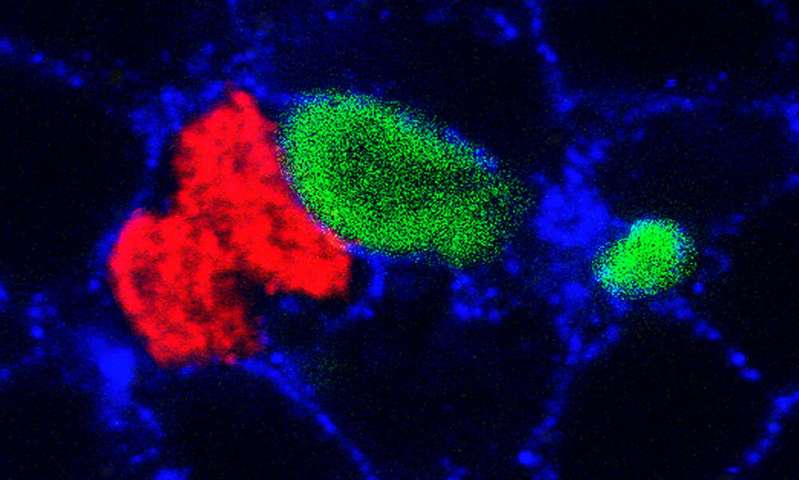University of British Columbia researchers have developed a specialized microscope that has the potential ability to both diagnose diseases that include skin cancer and perform incredibly precise surgery — all without cutting skin. The researchers describe the technology in a study published today in Science Advances. “Our technology allows us to scan tissue quickly, and when we see a suspicious or abnormal cell structure, we can perform ultra-precise surgery and selectively treat the unwanted or diseased structure within the tissue — without cutting into the skin,” said Yimei Huang, co-lead author…
Read MoreCategory: Skincare
Opioid-exposed newborns may react to pain differently after birth
Babies exposed to opioids while their mothers were pregnant with them may need special care even before they start to experience withdrawal symptoms, according to Penn State research. Researchers from Penn State College of Medicine found that as soon as 24 and 48 hours after birth, babies who were exposed to opioids prenatally reacted more strongly to pain and scored higher on a skin conductance test, which measures the electrical differences in skin in response to pain or stress. Dr. Christiana Oji-Mmuo, assistant professor of pediatrics, said the study suggests…
Read MoreCellular rivalry promotes healthy skin development
Not all cells are destined for greatness. Deemed unfit to serve in the body, some are killed off during early development through a process called cell competition. This phenomenon has previously been documented in flies and is now turning out to occur in mammals as well. In a recent study, described in Nature, Rockefeller scientists showed that skin cells in mice engage in two forms of competition, one taking place during early embryonic development and the other occurring just before birth. The researchers believe that this cutthroat cellular conflict is crucial…
Read MoreNewly identified bacteria-killing protein needs vitamin A to work
People who have inadequate vitamin A in their diets are more susceptible to skin infection, yet how that vitamin affects skin immunity has been unclear. In a study published today, UT Southwestern researchers shed some light on that mystery by identifying a previously unknown bacteria-killing protein on the epidermis that requires the vitamin to work. The researchers found that one protein in the resistin-like molecule (RELM) family — RELMα — acts as an antibiotic to rapidly kill bacteria. Both RELMα, which is made by mice, and the corresponding human RELM…
Read MoreEmbryo stem cells created from skin cells
Researchers at the Hebrew University of Jerusalem (HU) have found a way to transform skin cells into the three major stem cell types that comprise early-stage embryos. The work (in mouse cells) has significant implications for modelling embryonic disease and placental dysfunctions, as well as paving the way to create whole embryos from skin cells. As published in Cell Stem Cell, Dr. Yossi Buganim of HU’s Department of Developmental Biology and Cancer Research and his team discovered a set of genes capable of transforming murine skin cells into all three of…
Read More




